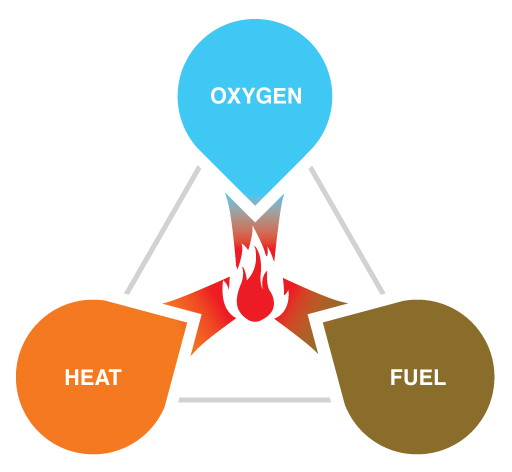For the first two months of 2024, the Bureau of Fire Protection (BFP) recorded 3,044 fires in the Philippines[1]—quite an increase compared to less than 2,000 incidents in the same period last year.[2] Since March is Fire Prevention Month, it’s time to reflect on how to improve these statistics.
As everyone can agree, no one wins in a fire. Not those whose properties get ravaged by the flames. Not those who lose their limbs, or worse, their lives. Not those who watch the whole tragedy unfold from a distance. Not the environment, which gets nothing out of it but toxic gases and fumes.
Fires may break out without warning, but that doesn’t mean they happen out of nowhere. Most of the time, fires are completely preventable. For your safety, check out fire prevention tips below.
What are the Goals of Fire Prevention?
A fire prevention program is considered successful when these three goals are met:
- Prevent the loss of life
- Protect properties from damage
- Avoid downtimes caused by operational disruptions
What is a Fire Triangle?

For a fire to ignite and maintain combustion, three elements are needed: fuel, heat, and oxygen.
When at least one of these is missing or at low levels, a fire can’t start or spread. That’s why one of the basic strategies for preventing fire is to isolate sources of fuel or heat. Needless to say, removing oxygen from the equation is nearly impossible most of the time.
Top 10 Fire Prevention Tips to Remember
Here are 10 fire safety tips for keeping your home or workplace safe from disasters:[3]
✅ Avoid Electrical Overloading
-1.png?width=600&height=400&name=Pics%20for%20blog%20-%20600x400%20(71)-1.png)
Overloading your circuits is a big fire hazard—this is one of the most important fire safety reminders you shouldn't overlook.
Avoid plugging too many devices into your electrical outlets to keep them from overheating and catching fire. High energy-consuming appliances like refrigerators and air conditioners should have their own outlets to prevent electrical overloading at home.
Also, practice unplugging your devices and appliances when not in use. It's a good practice whether you’re just going to bed for a few hours or leaving your home or workplace for an extended period.
✅ Check Electrical Connections for Faulty Wiring
Faulty electrical wiring can cause a fire. To prevent it, get a licensed electrician to periodically check your appliances for exposed or worn-out wires.
Even on your own, you can easily spot some signs of damaged wiring, including out-of-place flickers and a burnt smell. When you spot frayed wires, damaged sockets, or defective electrical equipment, get them fixed or replaced immediately.
✅ Fireproof Your Kitchen
-1.png?width=600&height=400&name=Pics%20for%20blog%20-%20600x400%20(70)-1.png)
The kitchen can be a fire hazard all on its own if not properly maintained. Make sure to follow these fire safety tips in the kitchen.
First, don’t leave a gas stove unattended. Even if you have to leave momentarily, just turn off the stove until you can attend to it again.
Another crucial fire safety tip is to not lean over open flames when wearing loose clothing to keep it from catching fire. Also, keep your cooking area free of combustible objects like potholders and towels.
Lastly, after using charcoal for cooking, make sure to extinguish the embers completely.
✅ Turn Off Gas Tanks When Not in Use
It only takes one errant spark to cause your gas tank to ignite. To avoid a terrible accident, close your liquefied petroleum gas (LPG) every after use. It's one of the most important safety tips for fire prevention that you must take to heart.
Constantly check the LPG for any leak or damage to avoid not only fire but also health risks.
✅ Keep Your Light Sources Secured
This fire safety tip is easy enough to remember—but constantly ignored.
Filipinos usually light candles or gasera (kerosene lamp) during power outages. If this is something you do as well, make sure to use sturdy candle holders that can keep your candles in place. Look for a clear spot where candles and gaseras won’t get tipped over. Also, keep your candles away from things that can easily catch fire, including curtains, carpets, bedsheets, and paper.
To ensure foolproof safety against fire, use a rechargeable lamp or flashlight as an alternative light source during a power outage.
✅ Practice Good Housekeeping Habits
Not all fire hazards are blatantly noticeable. A pile of leaves in your front yard looks harmless until extreme heat turns it into a bonfire. A stack of old newspapers, a mound of empty plastic bottles, or a clump of overgrown shrubs can all set off a fire.
As a rule of thumb, keep aisles, walkways, and stairways clear of any trash. Clean and clear pathways at home or in the office can prevent the spread of fire. It also gives people enough space to move and evacuate during emergencies.
Also, properly label items to avoid misplacing flammable substances and corrosive liquids.
Good housekeeping habits not only prevent fire but also improve your overall well-being.
✅ Observe Proper Smoking Etiquette
-1.png?width=600&height=400&name=Pics%20for%20blog%20-%20600x400%20(72)-1.png)
According to the BFP, smoking is the leading cause of fire incidents.[1] So if you’re tempted to smoke inside the house, just don’t—unless you have a designated smoking area at home designed to prevent fires.
Smoking in bed should be avoided at all costs. Linens and mattresses can catch fire easily, so stay as far away from them as possible when smoking.
Use an ashtray to crush your cigarette stubs and dispose of them properly, ideally after dousing them with water.
✅ Install Smoke Alarms
Smoke alarms can alert you when a fire breaks out. Ideally, set them up on every floor—one in each bedroom and hallway. Wall-mounted alarms should be placed four to 12 inches away from the ceiling, and ceiling-mounted ones four inches from the nearest wall.
Prepare an emergency plan in case it goes off. Set escape routes and exits, teach everyone how to crawl on the floor to escape the heat and smoke, and make sure they know which emergency numbers to call.
✅ Get a Fire Extinguisher
Installing a fire extinguisher at home or in the office doesn't directly prevent a fire, but it can surely help stop it from spreading.[4]
Using just water to contain a fire isn’t always advisable. Fires caused by electrical problems will just inflict greater damage when put out using a liquid.
When shopping for a fire extinguisher, look for one with the Philippine Standard (PS) License and Import Commodity Clearance (ICC) marks. This means the product is certified to be safe and of acceptable quality.
Inspect your fire extinguisher at least once a year to make sure it’s still working. There shouldn’t be any cracks; the locking pin should be in place; and the handle should still be safely lodged in its position. If you find any defect, confirm with an expert if you need a new fire extinguisher.
Read more: Protect Your Home and Workplace: Know the Importance of a Fire Extinguisher
✅ Get Insurance
To round up this list of top 10 fire safety tips at home, make sure to get fire insurance. Again, this isn't exactly a preventative measure, but it’ll give you peace of mind.
With fire insurance, you protect yourself financially from the aftermath of a fire. You won't have to deplete your savings or emergency fund in case your property gets damaged or destroyed. Depending on your policy's inclusions, it might cover repairs, reconstruction, and compensation of affected parties.
You can also consider mortgage redemption insurance to ensure that outstanding mortgage debt is paid in the event of total disability or death during a fire. It may sound grim, but it’s a good measure in addition to fire prevention.
Final Thoughts
Prevention is the best fire safety measure. Following these fire prevention tips at home and in the workplace can help make your environment safe from hazards.
Hopefully, you never find yourself in a situation where you’ll need to make a fire insurance claim. Still, it’s undeniable that insurance takes a lot of stress out of the equation. Compare your fire insurance options by clicking the banner below:
Sources:
- [1] BFP: Fire incidents up 25% in first 2 months of 2024 (Philippine News Agency, 2024)
- [2] Nearly 2,000 fire incidents recorded so far since January—BFP (GMA News Online, 2023)
- [3] PRC REMINDS THE PUBLIC ON FIRE SAFETY (Philippine Red Cross, 2022)
- [4] DTI: Fire Extinguishers as First Aid in Fire Fighting










